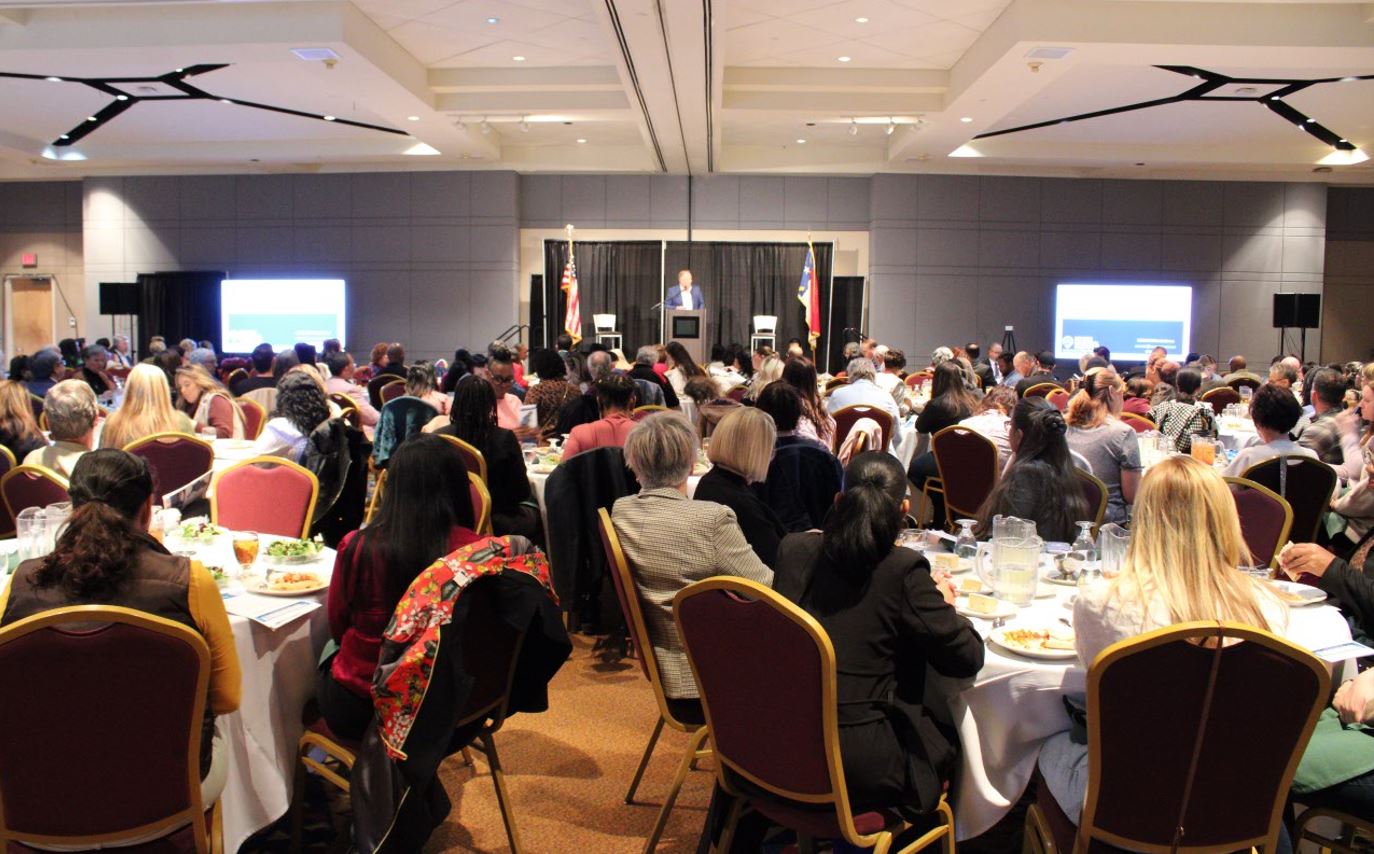
Local realtors can begin the year armed with the knowledge of what is to come to local markets thanks to the information gathered at the 2025 State of the Real Estate Market Luncheon which was held on Tuesday, Feb. 18, at the Crown Complex in Fayetteville.
Led by industry leaders Patrick Bowen of Bowen Research, who presented key findings from the Carolina Core Housing Needs Assessment; former LPR President Dave Evans, who gave an overview of local MLS statistics and trends, Robert Van Geons, president & CEO of Fayetteville Cumberland Economic Development Corporation (FCEDC), who shared updates and insights on local economic development and Master of Ceremonies and LPR President David Zeitz.
The event allowed for networking to take place over lunch before launching into the data that these realtors can pull from moving forward.
According to the Carolina Core Housing Needs Assessment, key factors in the Cumberland County real estate market include:


Copies of each of the speaker’s presentations will be made available to view on the Longleaf Pine Realtors Association website here in the near future.

Kristen Botts co-founded the program with her husband, Nathan Botts, who is a Veteran himself. Photos provided by Kristen Botts.An organization helping Veterans live a full life after their service in the U.S. Military wants to connect Veterans and d

Patrick NoblesHuntington Bancshares Incorporated announced on Feb. 2 that it has closed its merger with Cadence Bank, a regional bank headquartered in Houston, Texas and Tupelo, Miss. This strategic partnership accelerates Huntington’s growth in

There is extensive dialogue surrounding Fayetteville as a travel destination or city aimed at recruiting new businesses and new residents. As someone who moved here from out of state, I thought it could be fun to share my personal experience as